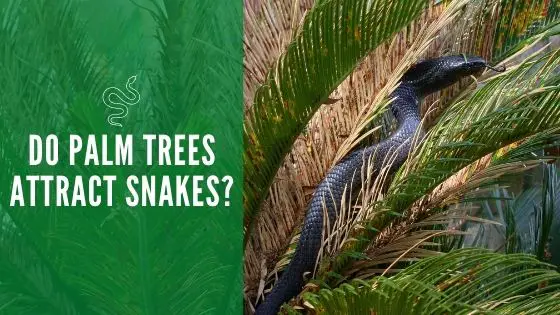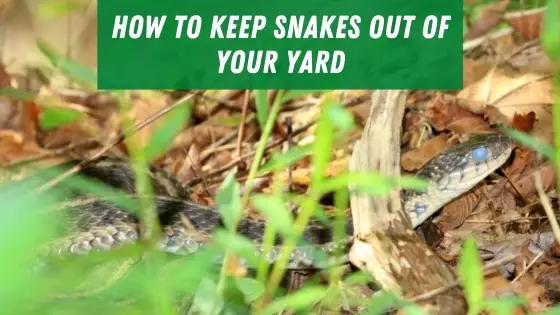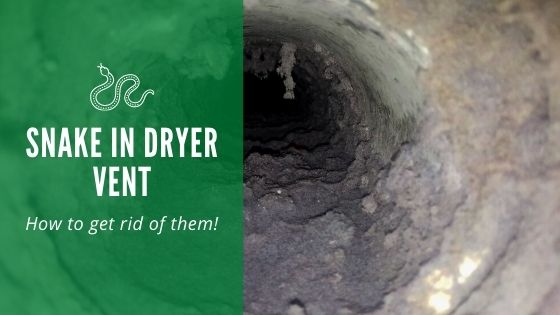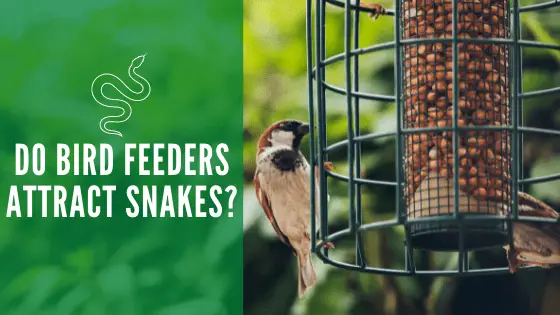Do Palm Trees Attract Snakes?

While palm trees do attract snakes, there’s a very specific reason that the reptiles slither up those trees, and it’s because of the rodents. Rats, mice, and other rodents can make their homes in palm trees, and the snakes will soon follow.
Mice live in palm trees for shelter, food, and protection from predators that primarily operate on the ground. Unfortunately for them, snakes can climb trees, and several smaller snakes, such as rat snakes, take up residency inside the knotholes of palm trees.
Types Of Snakes That Live In Palm Trees
Rat snakes tend to make their homes in palm trees, and almost all snakes can climb trees and make their homes in them. However, it is fairly uncommon, so there isn’t a specific type of snake that will exclusively live up in a tree. If the conditions are right, the snake will do so, but otherwise, they will use the palm tree for a purpose and then move on.
That purpose and the answer to ‘what attracts snakes to palm trees’ are the same: Food. Mice are the ones that congregate in and around palm trees. Roof rats (palm rats) are the leading rodent pest in Florida and other tropical climates. These sneaky creatures prefer to live off the ground and climb trees like the queen palm, coconut palm, and cabbage palm. Snakes will also climb trees to stay out of reach of their natural predators.
Other insects that are attracted to palm trees include wasps, bees, scorpions, ants, and roaches.
What Trees Attract Snakes?
The trees that attract the mice are the trees that attract the snakes. Any trees with fruit or seeds, such as citrus trees, pecan trees, and even trees that have bird feeders, will bring the mice to your yard. Then those mice will attract the snakes, and they’ll climb up the trees to get them.
Cedar trees can also attract snakes due to the pleasant scent of the plant, plus mice and other reptiles come to the tree too. It’s like a one-stop shop for free dinners for a hungry snake. Make sure to harvest any fruit or nuts before the animals get them, or place repellents around to overpower the strong scents.
How To Keep Snakes Out Of Your Yard
The best way to remove the snakes is to remove their food sources. If you can remove access to the food and water that a snake’s prey eats, you will discourage snakes from coming into your yard.
You can also remove any ground cover plants that give them shade in the heat. Snakes and other reptiles are cold-blooded, meaning that they seek outside sources of heat for warmth. They want to stay cool as much as you do on a hot summer day, so make sure to maximize the exposure that the snake gets.

Additionally, if you live in very hot areas, a temperature of 100 degrees Fahrenheit is lethal to a typical snake, so on very hot days, most snakes need to stay cool, or they will die.
If you keep your yard clean, take control of any shade-filled spots snakes can hide in, and trim any tall plants, then you will have created a heated deathtrap for the reptiles.
Repair Your House
Finally, while most snakes can be a yard problem, the real way to keep snakes out of your yard is to fix your house. Snakes will look for anywhere to get warm or cool off, depending on the outside weather. They can crawl under your porch, go under your dryer vent, or even hide inside your house. All of these potential entrances need to be fixed up before you can call your yard snake-free.
Additionally, snake proofing your home and garden can also make sure that rodents don’t make nests inside your home as well. You kill two birds with one stone by cutting off both the snakes and their food source!
Trapping and Removing Snakes
Of course, if you manage to find a snake in your yard, you will need to remove it as quickly as you can. Even if it isn’t venomous, most snakes can still bite if threatened. If the snake isn’t more afraid of you and chooses not to slither away on its own, then you can put on gloves and lift the snake by the tail to carry it away.
You can also get it to bite or coil around a stick or other long object and carry it away as well. If the snake does appear to be poisonous like a rattlesnake, then contact a pest control professional.
Still, all it takes is a bit of common sense and proactiveness, and the snake issue in your yard will easily be solved!
Sources:
https://www.alfordwildlife.com/palm-rats-get-rid/



